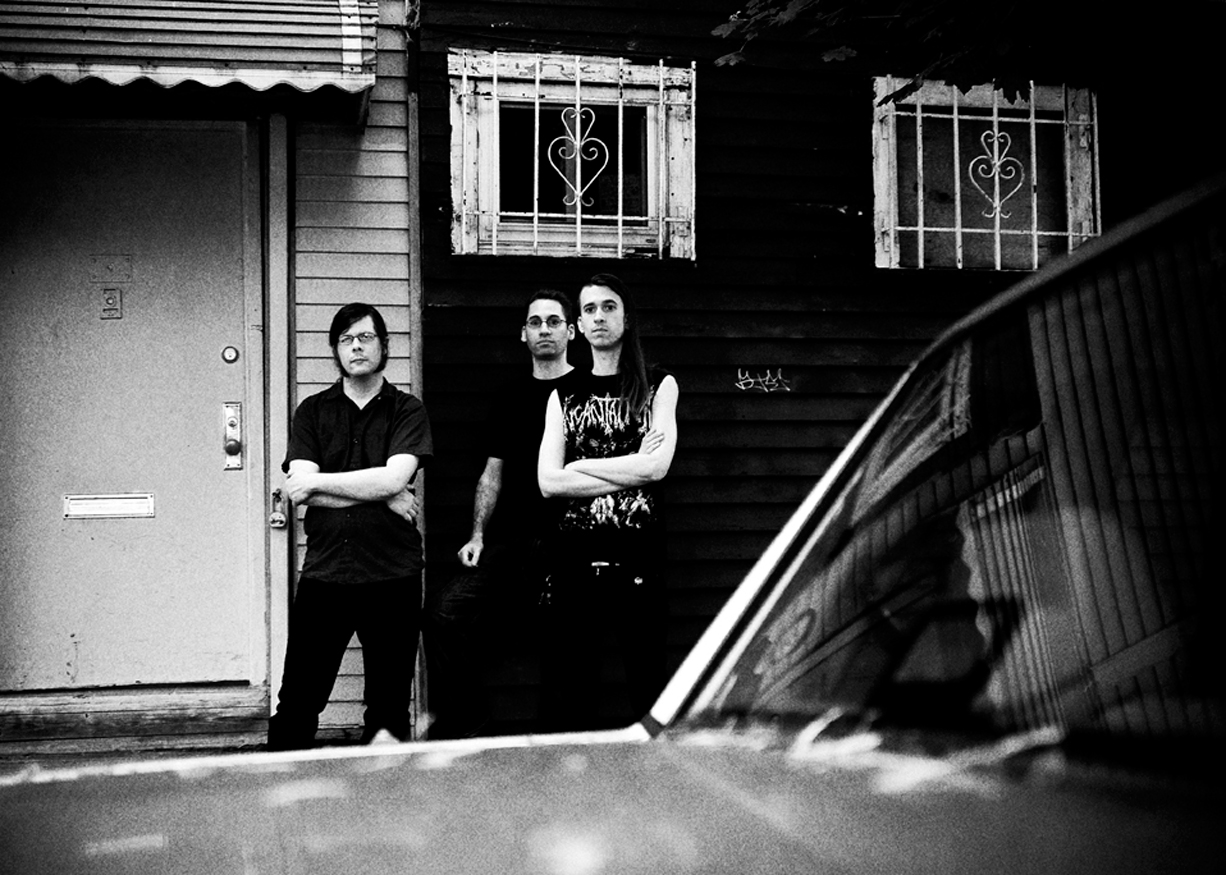Strip down, way down, the layers of the moody energy of Brooklyn post-rock metal trio Dysrhythmia’s fifth album, Psychic Maps (Relapse), and you can hear an indication of the agility responsible for the band’s deep intensity: intricately finger-plucked acoustic guitar doubling gained-up electrics. It’s a testament both to the band’s attention to detail and guitarist Kevin Hufnagel’s varied virtuosity on guitar.
“I just love acoustic guitar and the combination of heavy guitars and acoustic thumbing,” Hufnagel says. The guitarist’s style is a big reason why this record sounds so dynamic and compelling after more than one listen. Critics have dubbed the band as everything from technical post-rock, which doesn’t jibe with Dysrhythmia’s jarring immediacy, to prog metal, which again would suggest the music puts on airs that it simply doesn’t.
In the past, the band’s approach to recording has been to bring the forceful energy of its live show to a 50-odd-minute album. Throw in high-profile producers Steve Albini, who produced the band’s highly acclaimed 2003 Pretest (Relapse) album, and Martin Bisi, whose bona fides include working with Brian Eno and producing scores of classic underground artists (Sonic Youth, Lydia Lunch, John Zorn, Sereena Maneesh), and you have the structure that birthed the band’s last two records.
But this time was different. Although the band would’ve loved to work with Bisi again, he had retired. Thankfully, they had a ready solution to the question of who would produce the new album in bassist Colin Marston, a sound engineer who has worked with the likes of Genghis Tron and Child Abuse. The band decided to hole up in their Brooklyn apartment and record the album on their own.
The relative freedom of being able to take their time to record led the band to explore new directions. “It allowed me to do more things guitar-wise as far as adding a lot of orchestral embellishments, more guitar layers,” Hufnagel says. “There’s lots of stuff to listen to in the mix. I wasn’t concerned with it sounding exactly like we do live; that can get boring.”
Although their intensity never wavers, playing live and recording are definitely two different things for Dysrhythmia. Hufnagel is happy to start using the studio as a more exploratory stage to craft songs that the band has played for sometimes up to two whole years before recording.
The lapse in time could be partially explained by the band members’ own hyperactive involvement in other projects. Hufnagel recently released a full-length solo album entitled Songs for the Disappeared; Hufnagel and Marston are new members of recently reformed Canadian metallers Gorguts; and Marston was, until December of 2008, still working with his former band Behold…the Arctopus.
“We all have so many different things now. So rather than try to throw it all into one band and end up sounding like Mr. Bungle or something, we’d rather really focus our energy elsewhere,” he says.
And right now the energy is focused on Dysrhythmia. Where contemporaries such as Mastodon and Isis have taken off in the past few years thanks to a burgeoning interest in independent metal, Dysrhythmia is still lurking in the shadows, nursing a fan base that’s been created during a decade of touring.
Hufnagel sighs heavily when I remind him of his band‘s age — it’s not a sigh of defeat, of course, but simply one of amazement. This is a band that has earned its following, not gained it overnight; and Hufnagel knows that in many ways, that’s the following that you want to have.

